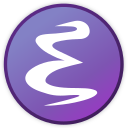Top BVRDE Alternatives for Cross-Platform Development
BVRDE is a specialized integrated development environment (IDE) designed for Windows users who need to compile and debug UNIX and LINUX console applications remotely. It excels at providing a seamless experience, integrating compilation warnings, auto-completion, and debugging directly into the Windows IDE. However, for various reasons such as platform preference, specific feature needs, or a desire for open-source solutions, developers often seek a BVRDE alternative. This article explores some of the best IDEs that offer robust cross-platform development capabilities, some with strong remote features, others with powerful local development for similar environments.
Best BVRDE Alternatives
While BVRDE provides a unique solution for remote UNIX/Linux development from Windows, a variety of other IDEs offer compelling features that might better suit your workflow. Whether you're looking for broader language support, deeper integration with specific technologies, or a more community-driven approach, these alternatives provide excellent options.

Eclipse
Eclipse is a highly extensible, free, and open-source development platform available on Mac, Windows, and Linux. As a powerful IDE, it supports a wide range of languages including Python, Java, PHP, and Ruby. Its robust plugin architecture allows for extensive customization and integration, making it a strong BVRDE alternative for developers seeking a versatile and community-driven environment with features like autocompletion, debugging, and collaborative workspaces.

Microsoft Visual Studio
Microsoft Visual Studio is a comprehensive IDE from Microsoft, available as a free personal edition on Mac, Windows, and Web. While primarily known for Windows and .NET development, it offers robust features like code completion, an embedded debugger, Intellisense, and extensive language support including C#, F#, and Python. Its powerful debugging capabilities and integration with Azure make it a strong contender as a BVRDE alternative for developers working within the Microsoft ecosystem or needing a feature-rich, integrated debugging experience.

Apache NetBeans
Apache NetBeans is a free and open-source IDE that runs on Mac, Windows, Linux, and BSD. It's an excellent choice for developing professional desktop, enterprise, and web applications, offering comprehensive tools for Java, PHP, and Ruby. With features like a built-in terminal, code completion, embedded debugger, and GIT support, NetBeans provides a cross-platform and feature-rich environment that can serve as a robust BVRDE alternative, especially for Java developers.

PyCharm
PyCharm is a cross-platform Python and Django IDE, available in both freemium and open-source editions for Mac, Windows, Linux, and BSD. It offers advanced features like on-the-fly code analysis, a graphical debugger, VCS integration (Git/GitHub), and intelligent code completion. For developers focused specifically on Python and needing robust debugging and code quality tools, PyCharm is an exceptional BVRDE alternative, providing a highly specialized and efficient development experience.

GNU Emacs
GNU Emacs is a free and open-source text editor, available on Mac, Windows, Linux, and BSD, that functions as a highly extensible and customizable IDE. Powered by Emacs Lisp, it offers features like syntax highlighting, package control, and self-documentation, making it adaptable for nearly any language. For developers who prioritize extreme customization and a powerful scripting environment, Emacs serves as a versatile and adaptable BVRDE alternative, capable of handling complex development workflows.

Code::Blocks
Code::Blocks is a free and open-source C++ IDE available on Windows, Linux, and BSD. Designed to be highly extensible and configurable through plugins, it provides essential features for C++ development. For developers primarily focused on C++ projects who need a straightforward yet powerful IDE, Code::Blocks is a solid BVRDE alternative, offering a dedicated environment with good integration capabilities.

Qt Creator
Qt Creator is a cross-platform IDE for C++, JavaScript, and QML, available commercially and as open-source for Mac, Windows, Linux, and BSD. It's part of the Qt SDK and boasts features like autocompletion, a robust build system, a debugger, and excellent syntax highlighting. For developers working with Qt frameworks or needing a strong C++ IDE with comprehensive tools, Qt Creator is an effective BVRDE alternative, offering a powerful and integrated development experience.

CodeLite
CodeLite is a free and open-source, cross-platform IDE supporting C/C++, PHP, and Node.js. It runs on Windows, Mac, and Linux (via wxWidgets), and is known for its lightweight footprint and virtual filesystem. As an IDE, it provides essential development tools, making it a viable BVRDE alternative for developers seeking a robust, open-source solution for multiple languages without excessive overhead.

Xcode
Xcode is Apple's free premiere development environment specifically for Mac OS X, including features like a compiler, integrated debugger, code completion, and color coding. While primarily focused on Apple's ecosystem (iOS, macOS), for developers who have transitioned to a Mac environment and require native development tools, Xcode provides a highly integrated and optimized BVRDE alternative for creating applications within that platform.

KDevelop
KDevelop is a free and open-source integrated development environment available on Windows, Linux, and BSD. It provides robust editing, navigation, and debugging features for multiple programming languages including Java, Python, and Ruby. Known for being lightweight and extensible through plugins, KDevelop offers a strong, community-driven BVRDE alternative for developers seeking a flexible and efficient IDE, particularly in Linux environments or for KDE users.
Choosing the right BVRDE alternative depends heavily on your specific development needs, preferred operating system, and the languages you work with. Each of these IDEs offers unique strengths, from broad language support and extensibility to highly specialized features for particular programming paradigms. We encourage you to explore these options to find the best fit for your cross-platform development projects.